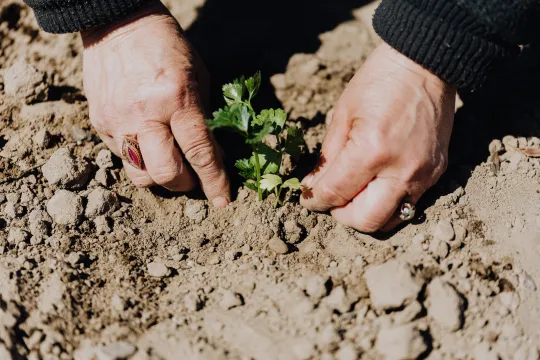Active banners: 1 Visible banners: 1
Banner ID: 4 Has content: true
Let's create continuous conversations about climate change education: Spreading the Sediment of Science!
Gardens and Grounds Resources
Provided by: Oregon Green Schools |Published on: May 26, 2023
Articles/Websites
6789101112
Synopsis
- This reference sheet provides many links for teachers and schools in Oregon to increase their outdoor learning opportunities, become a certified Green School, and add environmental curriculum into their lessons.
- Funding opportunities, field trips, and partner organizations are also identified in the resource.

Subjects: Science, Social Studies
Authors: Oregon Green Schools
Region: North America, USA - West, United States, Oregon
Languages: English
Teaching Materials
Positives
- There are links to available grants to help schools fund their outdoor project.
- There are suggestions for outdoor field trips in many different regions of Oregon.
Additional Prerequisites
- The Slow Food USA Youth Farm Stands Toolkit and SOLVE (natural area environmental volunteerism) links are broken.
- Certain forms need to be filled out when in the planning phase and then upon completion of the project.
Differentiation
- Guidance or SEL classes can carry out this project after discussing the impact that green spaces have on mental health, focus, school performance, etc.
- Family and consumer science classes can use this project to create an edible garden that can be utilized in cooking portions of the class. These classes can also discuss how gardening and green spaces can be beneficial to their school and their environment.
- Science classes can use this project to supplement a unit on the carbon cycle and the impact human activity has on the environment. These classes can discuss gardens and green spaces as a climate solution, and work as a class to find the best solution for their school.
- Schools further away from the locations suggested for field trips can see if any of these places would offer a virtual field trip for their students, or can have their students go on a web quest to find out more about those locations.
- Civics classes can discuss how to form a committee to carry out this project in their school and can go about creating and filling this committee.
- Civics classes can be separated into groups and work to create a proposal for the best way to carry out this project in their school.
- Younger students can contribute to the project by planting, weeding, and watering gardens and grounds. They can also talk about how planting can be helpful for the environment.
Scientist Notes
Teaching Tips
Standards
Resource Type and Format
All resources can be used for your educational purposes with proper attribution to the content provider.
Teaching Materials
Educator Support
My Account



